If you ever wanted to know the brain behind the maiden Felicity or the IIIT-H Alumni Fund, meet Vipul Kedia. His name crops up frequently in conversations with early staffers and faculty. He is from the second batch of IIIT-H, a self-confessed early stakeholder for whom the institute is not just “a second home”, but an extension of himself. In a telephonic conversation, he talks of relationships for life that he’s made here and gives some sage career advice.
Tell us about yourself.
I’m from Jaipur, currently based in Gurugram (Gurgaon). In the mid-90s, there were not too many choices. Either you could opt for Medicine or Engineering. I can’t say that I always wanted to be an engineer, but it was possibly the only option I had.
I’m from the second batch of IIIT-H, 1999-2003. That was also the time when the dot-com boom was under way. I saw an ad in the newspaper. It was called the Indian Institute of Information Technology at the time. I decided to apply here only because the name sounded good. I’ve always spoken about this that joining here was possibly the most irrational, but the best decision I ever made. There was no research or background about the institute to go on. I applied and got through: It just happened!
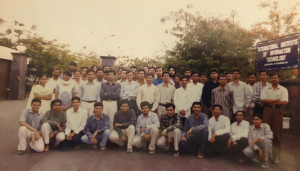
Many of the early staff members remember you fondly. Why do you think this is so?
I was among the active students in my batch. I still am. I have maintained touch with the institute and have always been very passionate about IIIT-H. The reason a lot of staff members remember me is because when I was on campus, I was always involved in starting a lot of things – a lot of activities. I played a role in initiating Felicity, the cultural festival of IIIT-H. I was the coordinator of the first Felicity event. There were many other student activities that were initiated by our batch. I was part of the Student Parliament. I handled many of the cultural activities, and a lot of other activities while I was on campus. And even later, once we graduated, I played a role in setting up of the Alumni Fund which funds scholarships for the needy students. It involved getting in touch with the alumni, creating a corpus, and a sustainable model for the fund.
I’m well connected with the IIIT-H fraternity. I’m on the Governing Council of IIIT-H as an alumni observer, along with Soujanya from the first batch. I have been in touch with many of the faculty members and students across batches over the years. I’m also involved in driving some of the alumni activities. For example, I helped plan and organize the alumni meets which we had in the Bay Area, Hyderabad, Bangalore and so on, along with Meenakshi, the alumni co-ordinator and the local teams in each city.
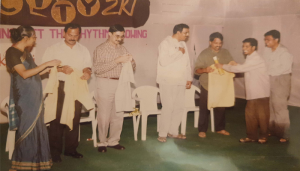
List out special memories you may have from your time at IIITH.
There are a lot of special memories. It’s difficult to isolate a couple of them. But the entire experience of seeing the institute grow up is special. We were the early stakeholders of the institute. When we first joined here, a) nobody knew about IIIT-H, b) it didn’t even have a deemed university status. We came in expecting a Diploma. It was really up to us to make good of our time in IIIT-H and therefore all of us in the initial batches were very proactive.
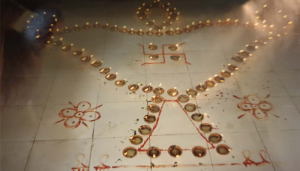
We didn’t have many full time faculty members. We were to a large extent left to learn by ourselves and find our way around. I was always equally passionate about extra-curricular activities. So my special memories revolve around organizing the first Felicity. Thanks to our age and the stage at which the institute was, it was a very big event to put together and execute. The other memories are the special relationships I built with the faculty members. Many of them came in after us – Prof. Jayanthi, Prof. Kamal, Prof. PJN, Prof. Jawahar. There was a good rapport with them and a lot of mutual understanding along with a passion to create a leading institute. We could speak our mind, and the faculty would see us as equal stakeholders. The initial faculty members such as Prof. Kaul, Prof Govindarajulu, Prof. Sangal, Prof. Ahuja, didnt just teach us but showed us how to be good individuals. The kind of conversations we had with them, and the way we’re still in touch with them…those are relationships for life and very inspirational experiences. IIIT-H was and will always remain a second home for me.
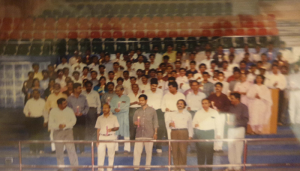
What did you do after graduating from IIITH?
I went to IIM-Ahmedabad and did my Masters in Business Administration (MBA) there. Post that, I had a short stint at IBM as a consultant for about 1.5 years. Since 2006, I’ve been with a company called Affle. I joined it within a few months of its inception and along with one of the founders, I was the first person to join the India office. Since then, the company has scaled up and spread across several regions. We have offices in India, South-East Asia, and the Middle-East. We work in digital advertising which is backed by lots of technology around big data, data mining, artificial intelligence, machine learning and so on.
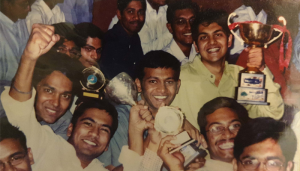
How has your current role evolved over the 12-odd years?
It is almost like my own venture. Even though I’m technically not a founder, I hold stake. It involved taking it off from the ground, building it from a 4-member India team to close to 200 people currently. I think it was very similar to the IIIT-H journey. You join something new, you are passionate towards it, and you put in your efforts to scale it up and obviously along the way, there are changes. Affle has evolved over a period of time, pretty much similar to how IIIT-H has evolved. I think that’s who I am: I drive myself with passion. If I’m not passionate about something, then I wouldn’t be a part of it. And if I’m passionate about something, then there’s no reason to leave it either.
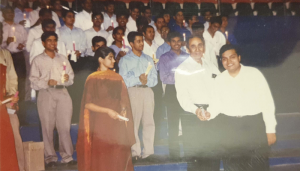
Why did you want to pursue an MBA?
I was active in the organization of various activities, managing overall event logistics and so on. For me, it was a combination of technology and industry which would have created some solutions. All the faculty at that time also thought that an MBA would be right for me, and supported the decision. It was a pretty late decision really…taken just a few months before the CAT (Common Admission Test) but it went off very well. The reason it was late was that there was always so much to do at the institute, something or the other happening, an activity to be organized. It was a very fun time,and that’s how IIIT-H shaped me. I did not possibly go as deep into technology as many others, especially the way students do now. I developed myself overall as a person and not just a strong engineer. That played a huge role in my career decisions.
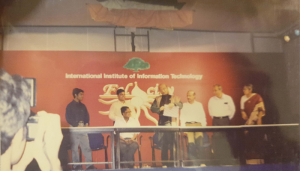
Would you recommend an MBA to other engineers?
I think it depends on their interest(s). Today, thankfully career options are very very attractive for both engineers and MBAs. In fact, I would say engineering has more attractive career options than what an MBA does. In our time, the highest salary in our class was about 3.6 lakhs. Today possibly, even if you factor in inflation and other factors, an average IIITian gets at least 3 times of that. So, I think career growth is not an issue. It is about who you are and what you want to do.
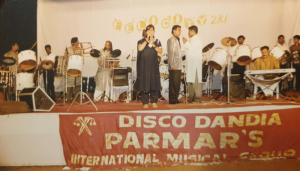
What was the inspiration behind the IIIT-H Alumni Fund?
The inspiration was two fold: One was to remain connected with the institute, and the second was to do something for those who get into IIIT-H but can’t afford it. There were students who faced financial difficulties. The motivation was to help them and at the same time, put in place a sustainable model in lieu of scholarships. The mechanism involved disbursement of loans where the students had to pay it back. It is now a successful self-sustaining initiative where the corpus itself keeps getting replenished and funding students.
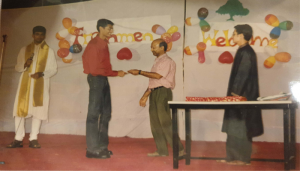
What advice would you give other engineers who wish to follow a similar career path as yours?
I firmly believe that whatever you learn never goes waste. So if you’re an engineer and then you do an MBA, don’t think you are wasting your engineering talent. Because finally all businesses, especially today, are technology-driven. Even my current role is a combination of business and product. But different people have different passions. What is important is to think through what one really wants to do and go for it. With time, the number of options are only growing. You have a lot of deep tech roles, along with techno-managerial roles. There are interesting sectors which never existed 15 years ago. Students these days are fairly discerning and aware of what they want to do which is great. People are more passionate in general and if you’re passionate about something then you will enjoy it – there is no right or a wrong decision.
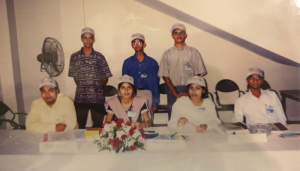

Sarita Chebbi is a compulsive early riser. Devourer of all news. Kettlebell enthusiast. Nit-picker of the written word especially when it’s not her own.

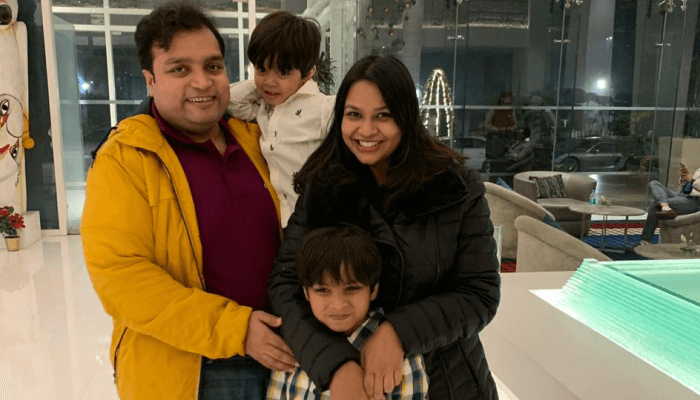
Next post